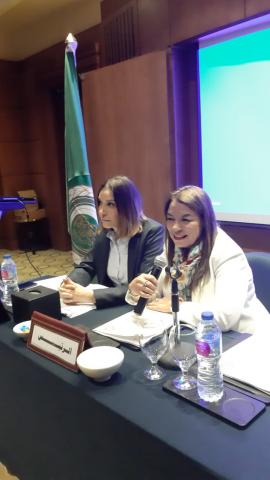

The Higher Population Council, represented by the Council's Secretary-general and the Arab Council for Population and Development chairman, Dr. Abla Amawi, participated in a workshop on the composite indicators related to population and development, which started today (Monday) with the organization of the Arab League in the Egyptian capital Cairo. The workshop activities will continue for two days with the participation of members of the Arab Council for Population and Development.
The workshop aims to train participants in the methodology of producing composite indicators used for population measurement and development, methodological issues associated with building composite indicators, the sensitivity of composite indicators to relative weights assigned to each sub-indicator, data sources that can be relied upon in calculating indicators, how Arab governments can benefit from the Population and Development Indicator in assessing the performance of population and development programs.
Dr. Amawi outlined the importance of composite indicators by measuring the level of performance of States in the various dimensions of population and development based on a set of sub-indicators and measuring progress in the implementation of both ICPD Program of Action 1994 and Sustainable Development Goals 2030.
Dr. Amawi indicated that the proposed indicators were based on the frame of reference on the substantive bases on population and development beyond 2014, developed by UNFPA on 38 indicators classified by five dimensions, dignity and human rights, sexual and reproductive health, location and mobility, governance and accountability, and sustainability.
The workshop is held over two days in an interactive methodology, which includes theoretical lectures, accompanied by discussions through working groups on the applications of composite indicators and how Governments can benefit from their values, as a scientific standard, a policy tool, evaluate achievements and determine future priorities in the light of the values contained in sub-indicators at the national and local levels.







